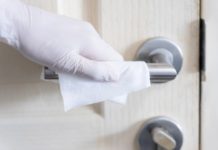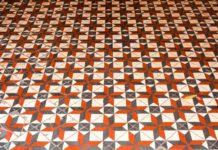Looking to detox your home?
The act of cleansing is extending to the home, where cleaning is no longer a spring chore. Detox can take on many forms; it can be your food, clothing, cleaning products and home.
Starting with the very air you breathe.
Air quality is so important and impacted by activities like washing clothes with cleaning powder, which, while unscented, can still release chemicals into the air.
To counter these effects:
If you can only afford one thing, start with the bedroom and sleep with an air purifier. It warns of anything dangerous in the air.
When it comes to making choices about everything from buying appliances to where to live, keep detoxing front of mind.
Built-in health is attractive–are you going to buy a home with a reverse osmosis filtration system or one with well water? Will you pick toxic paint or re-purposed wood? It’s so much more than a trend.
But before you shell out to live in a bubble and swear off the outside world, know all hope isn’t lost. There’s no such thing as a non-toxic world. You can go to the top of Mt. Everest and find air pollution. You won’t be at risk after one night of sleeping in a bed with flame retardant chemicals. But what we can do is be aware of these issues.
Ready to detox your home?
1. Invest in your air
The most important thing is air quality. There are devices that track it, but there are also simple things like vacuuming, particularly in winter when there’s more dust in the air and we don’t have windows open.
Also, refrain from using scented products and candles–anything cheap that you plug into walls. Most people think if the air smells good it must be fresh and that’s just not the case. Buy plants; they provide us with clean, natural air and oxygen.
And if you’re buying a new home, look at the windows, not just for light but filtration. You can have a sophisticated ventilation system, but you still want air that flows through.
See Also: Importance of House Plants To Your Health
2. Choose an eco-friendly mattress
You spend six to eight, even 12 hours in bed a day, which can be loaded with flame retardant chemicals. It’s in our mattresses, couches, anything with foam, and wreaks long term havoc on the endocrine system. Make sure it’s certified chemical-free because some companies still do it to this day.
3. Purge the pantry
Some of the same chemicals in jet fuel are found in products like potato chip bags which manufacturers spray to prevent static cling. The less plastic in your home, the better. Buy in bulk and store in glass. Look at what’s in every single thing. You could be buying organic cereal but the packaging is plastic. It shows up in ways you wouldn’t expect.
4. Consider your clothing
Check your clothing. Often, raincoats, or anything water repellent, even yoga clothes, have a chemical in them that makes its way into drinking and bottled water and does not biodegrade, ever. Water-proofed clothing not only has a negative impact on our health but also the planet. So, while your Lululemon leggings might not hurt you when you put them on, the microfibers are not great for the environment and have an impact.
5. Upgrade your drinking water
Test your water on a regular basis. If you’re moving into a new home, don’t take anyone’s word for it. Just because it’s well water from underground, don’t assume it’s safe. In fact, it can be more contaminated because it’s often not controlled by the city. You have to monitor it yourself. The best fix is to trade regular water for a reverse osmosis system, which removes the chemicals.
6. Clean consciously
Look at your cleaning products. Even expensive fragrances, products and detergents have ingredients that cause respiratory issues. Use gentle, sulfate-free, fragrance-free and plant-based detergents and products. You really only need vinegar, water and baking soda. For tough jobs you can bring out natural plant-based cleaners. It makes a huge difference.
7. Renovate in summer, and carefully
Do renovations during the summer so you can air rooms out, especially when dealing with paint or varnish. If you’re doing big renovations, move your family out. Things like lead paint, even when removed correctly, can still emit harmful dust.
8. Buyer beware
When you buy a home, make sure there wasn’t mold or water damage, which is very detrimental to health. Pay attention to whether it’s in a flooding area.
Also, look at what the home is next to–in a big city, make sure you’re not buying over a tunnel or highway where heavy metals can come through the air. In the suburbs, check for nearby cell towers, highways or manufacturing facilities. They can still bring in pollution even a mile away.
And no matter where you choose, look at interiors, not for superficial stuff, but rather, what paint was used, or how the home consumes energy.
See Also: How To Buy Your Dream Home Today From Kenya Homes!













